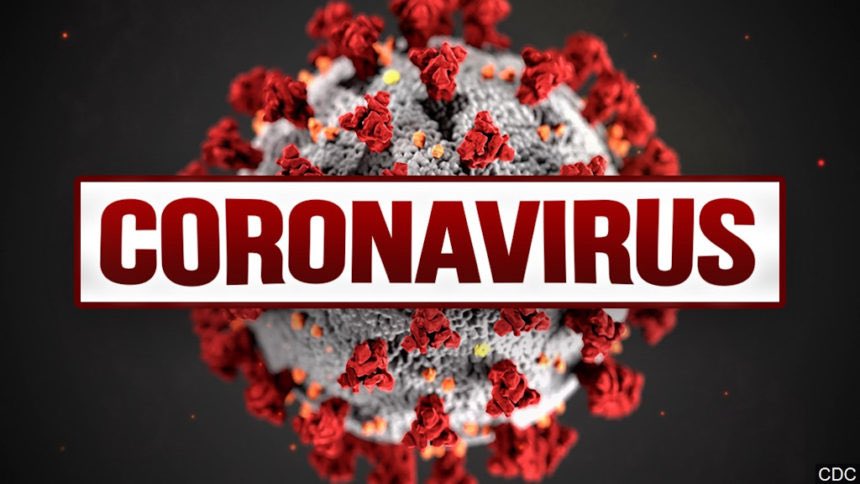3 Government, 2 Private labs testing Coronavirus samples in Pune

Pune, March 30, 2020: The Indian Council of Medical Research (ICMR), the apex health research body of India has activated more laboratories to test for COVID-19 and revised the testing criteria for the same. COVID-19 is mainly transmitted through contact with respiratory droplets rather than through the air.
ICMR has also revised the testing criteria for COVID-19 under which an individual should home quarantine themselves for 14 days if they qualify for the following conditions:
- Direct close physical contact of laboratory confirmed positive case
- History of travel in last 14 days to high risk COVID-19 affected countries
If the person develops symptoms like fever, cough and difficulty in breathing they should immediately contact the Ministry of Health and Family Welfare helpline for testing. If the person is asymptomatic, they do not require a laboratory test.
In addition to these conditions, if a healthcare worker managing respiratory distress/Severe Acute Respiratory Illness shows symptoms of acute respiratory illness they should get a laboratory test for COVID-19. If these cases are tested positive, then they should be isolated and treated as per the standard protocols.
Hospitals admitting suspect cases of COVID19 should collect nasal and throat swab samples in one VTM tube and transport them to the nearest testing laboratory in cold chain.
Government labs in Pune :
1 – National Institute of Virology, Pune
2 – Armed Forces Medical College, Pune
3 – BJ Medical College, Pune
Private labs in Pune : Testing will only be undertaken upon the prescription of a certified doctor and upon producing govt ID. The private labs are allowed to collect samples from homes of patients.
1 – Metropolis Healthcare Ltd, Bhandarkar Road, Pune (Helpline number 02041008200)
2 – A.G DIAGNOSTICS PVT LTD, Bhandarkar Road, Pune (Contact 02067636763)
What is Coronavirus?
Coronaviruses are a common group of viruses; while some coronaviruses affect only animals, a few others can also affect humans. It is very likely that all of us have been infected by coronavirus at some point in our life. The symptoms of a coronavirus can range from a mild cold to flu like symptoms to moderate and severe upper-respiratory infections. The SARS epidemic (severe acute respiratory syndrome) was also caused by coronavirus. Coronavirus is also known to affect the gut and hence some patients may suffer from diarrhoea.
The current situation is caused by COVID 19.
Coronavirus infections typically spike up during winter months as the virus can thrive in cold temperatures. So, people typically suffer from cold due to coronavirus in the months that are cold. The immunity is short lived and so we fall prey to cold and flu again.
How does COVID – 19 spread?
- Currently COVID – 19 is spreading from people to people
- The infection spreads through small droplets from the nose or mouth from the infected person when he/ she coughs or exhales
- One may directly get infected from this or may also get infected when these droplets land on surfaces and objects.
- When you touch infected surfaces and objects, the infection is spread to you
- That is why it is important to avoid touching your face – this greatly increases the chance of infection.
Symptoms of Coronavirus / COVID 19 infection
- The current COVID 19 infection has typical flu like symptoms
- The symptoms may begin 2-10 days after initial infection
- Sneezing, runny nose, fever, fatigue and cough are all symptoms of COVID 19 infections. In certain patients, diarrhoea was also reported.
- 1 out of every 6 people who gets COVID-19 becomes seriously ill and develops difficulty breathing. Older people, and those with underlying medical problems like high blood pressure, heart problems or diabetes, are more likely to develop serious illness.
- People with fever, cough and difficulty breathing should seek medical attention.
Precautions Against COVID-19 or Coronavirus infection
- If you are sick, make sure you stay at home.
- Avoid handshakes. Use gestures like waving, saying namaste etc.
- To touch light switches or elevator buttons, use your knuckle for minimum contact. To lift the gasoline dispenser, use a paper towel, tissue or disposable glove.
- Avoid grasping the door handles of bathrooms and commercial doors unless necessary. Try to open doors with fists or by using your hips.
- Try using disinfectant wipes when touching door handles in stores, grocery carts etc.
- Regularly wash your hands using soap and water or use an alcohol-based sanitizer with over 60% alcohol content when you cannot wash your hands. Make sure you keep your hands clean and dry after washing.
- At the entrance of your home and car , keep a bottle of sanitizer handy.
- Always cough or sneeze into a disposable tissue and discard it immediately. Cough or sneeze into your elbow if you don’t have tissues but keep in mind that infected viruses contained on the clothing around your elbow can be passed on for upto a week or more.
- Sanitize and disinfect your mobile phones, light switches and other things you frequently contact or touch.
- Follow reliable authorities like WHO or the CDC on guidelines about wearing masks. As per CDC, people showing COVID-19 symptoms should wear masks to protect others from being infected. The CDC doesn’t recommend people who are well to wear facemasks to protect themselves from COVID-19 or other respiratory diseases.
What are the treatments for coronavirus infections?
There is no vaccine or specific treatment for COVID-19. Medical care can help to relieve the symptoms. Antibiotics do not work against viruses; they only work on bacterial infections. COVID-19 is caused by a virus, so antibiotics do not work. Antibiotics should not be used as a means of prevention or treatment of COVID-19. They should only be used as directed by a physician to treat a bacterial infection.
If you are not in an area where COVID-19 is spreading, or if you have not travelled from one of those areas or have not been in close contact with someone who has and is feeling unwell, your chances of getting it are currently low.
However, it’s understandable that you may feel stressed and anxious about the situation. It’s a good idea to get the facts to help you accurately determine your risks so that you can take reasonable precautions.
Should I wear a mask to protect myself?
People with no respiratory symptoms, such as cough, do not need to wear a medical mask. WHO recommends the use of masks for people who have symptoms of COVID-19 and for those caring for individuals who have symptoms, such as cough and fever. The use of masks is crucial for health workers and people who are taking care of someone (at home or in a health care facility).
People who are infected with COVID 19 or have flu like symptoms should wear a mask so that they do not spread the infection. Masks help in keeping the droplets in but does not help in keeping the droplets out. That is, if you are healthy and using a mask, you are at more risk to carry an infection than if you are not wearing a mask.
Is there anything that I should not do?
The following measures ARE NOT effective against COVID-2019 and can be harmful:
- Smoking
- Taking traditional herbal remedies
- Wearing multiple masks
- Taking self-medication such as antibiotics
In any case, if you have fever, cough and difficulty breathing seek medical care early to reduce the risk of developing a more severe infection and be sure to share your recent travel history with your healthcare provider.
Ensure yours and others’ safety during COVID-19
Please see the below guidelines and this applies to you if you fall under the following parameters
- Recently visited a country that has an outbreak of COVID 19
- If you have come in close contact with a person that has travelled recently
- If any of your family members have recently travelled to a country that has an outbreak of COVID 19
- If you have been advised Home Quarantine by the government authorities
- If you have symptoms that resemble COVID 19
(Source: METROPOLIS)






